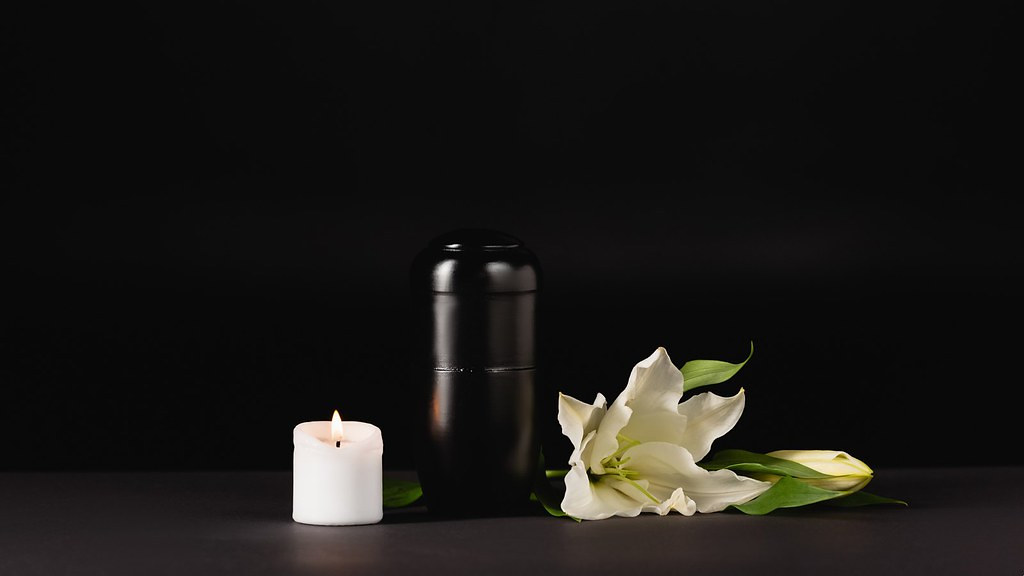A funeral service is sometimes neither wanted nor needed, and families of the deceased should be encouraged to reject the convention if it’s unlikely to ease their grief, or if it contravenes their wishes or those of the deceased. This recommendation, made by sociologists at the University of Bath, follows a three-year study into funeral choices and grief.
Dr Kate Woodthorpe, co-author of the research and co-director of the Centre for Death and Society (CDAS) at Bath, says the study’s findings challenge the assumption that holding a funeral service on the day a body is cremated is beneficial to mourners.
“Traditionally, a funeral has been seen as a public ritual that provides social support both to the people organising it and to the guests attending – it has been assumed that the service has therapeutic value, and until recently, very few people questioned the idea that a ‘good funeral’ involved an organised event shaped around custom, religious faith and individual expression,” she said.
The CDAS study of 261 mourners found no difference in ‘grief experience’ between those organising a traditional funeral service and those choosing not to.
The study, described in this infographic and discussed in this podcast, highlights two viable alternatives to the traditional funeral service: a cremation followed by an invitation-only ‘celebration of life’ service on a separate day (with or without the deceased person’s ashes), and a direct cremation, where there is no commemoration at any point.
In the UK, 78% of bodies are cremated. With a direct cremation, the deceased is taken directly to the crematorium: no ceremony is performed and there are no attendees.
“People who do things differently report feeling in control of their grieving process,” said Dr Woodthorpe. “By running a commemorative service separate to the day of the body’s cremation, they get to decide who attends, rather than having to share the event with a bunch of people they have to be nice to but who have been absent from the life of the deceased person for the past 30 years.
“Direct cremation is often marketed as, or regarded as, the ‘cheaper’ funerary option but our study shows there’s a lot more going on than just financial considerations. The trend also relates to evolving rituals and consumer behaviour – in fact, these might matter even more than cost. People want to bring their individual preferences to funerals and are less willing to conform to social norms.”
During the pandemic, demand has risen for direct cremations, and cremations followed at a different time by a commemorative event, with 14% of all deaths in 2020 resulting in a cremation that avoided a traditional funeral service. Of the nearly 700,000 registered deaths in 2020, this represents around 100,000 people.
Dr Hannah Rumble, study co-author and the Bath research fellow who undertook the interviews with bereaved people across England, Scotland and Wales, said: “The pandemic has forced us to question the assumptions around a ‘good’ funeral. It has made us realise that having a funeral is not always the most important thing for a family or community to do after a person has died.
“But whether or not there’s a funeral, it may be very important to have a series of events to bring different groups of people together after the day of the cremation. A remembrance occasion is generally more meaningful when people with a shared history come together to grieve their loss, rather than everyone the deceased has ever known being marshalled into a room on the day of the funeral.”
During the pandemic, legal restrictions on the numbers attending funerals have undoubtedly been responsible, at least in part, for the growth in ‘unconventional’ funerals. However the trend towards funerals that skip the traditional service precedes Covid-19: over the past decade, direct cremation has grown to account for 3% of all cremation funerals, and this figure rises to 6% if the definition includes a cremation with a separate celebration of life, memorial or commemoration service.
What’s more, Dr Woodthorpe expects these figures to go up further. “The take-up of direct cremation mirrors changes to weddings over the past 40 years, and reflects a desire to control who can attend,” she said.
Although the study found that cost was not a key driving factor for choosing a direct cremation, the saving is significant: there has been a steady rise in the price of funerals over the past few decades. In 2020, the average funeral cost (excluding professional fees and extras such as wakes) was £4,184 (£3,885 for a cremation and £5,003 or a burial), up from £1,835 in 2004. By contrast, the average direct cremation, where the coffin, preparation of the body, funeral service and transportation are all skipped, came to £1,554 last year.
Why are funerals changing?
The Bath research, published in Sociology, highlights four reasons for a change in attitude to funeral services:
- After a death, people are getting their social support from other places, rather than from the funeral service on the day of the cremation.
- There is a growing acceptance that there are other opportunities to commemorate and come together at another time and place, or online. For example holding a memorial service on a one-year anniversary of a death.
- A traditional funeral may not be consistent with the beliefs and values of the organisers of the deceased.
- A general questioning of the cultural expectations for there to be a public and open service that brings together a wide and disconnected network of people.
Online Seminar with CDAS
In this online research seminar Dr Kate Woodthorpe and Dr Hannah Rumble will discuss the qualitative findings from their recent study on cremation choices and grief, specifically focusing on the reasons why people choose direct cremation, before opening up the seminar for a wider discussion about the future of funerals post-pandemic.

